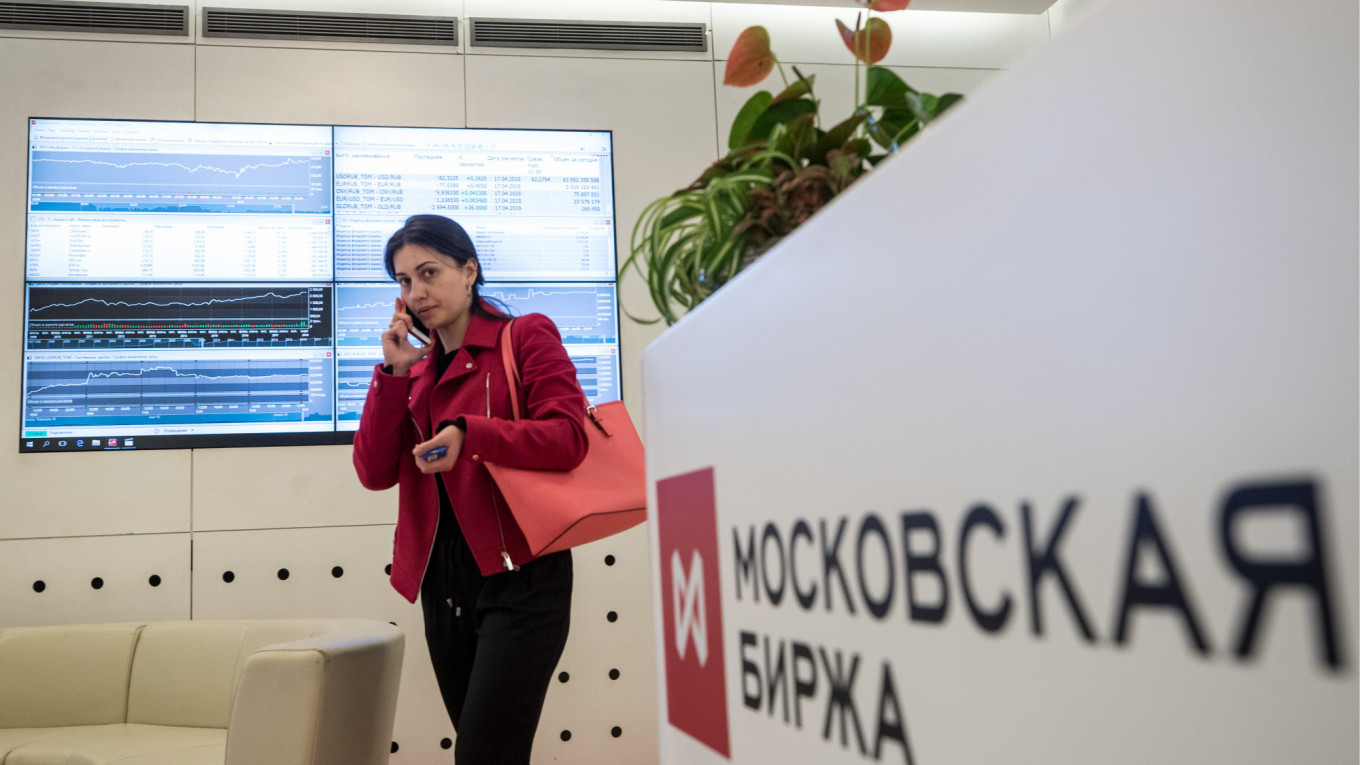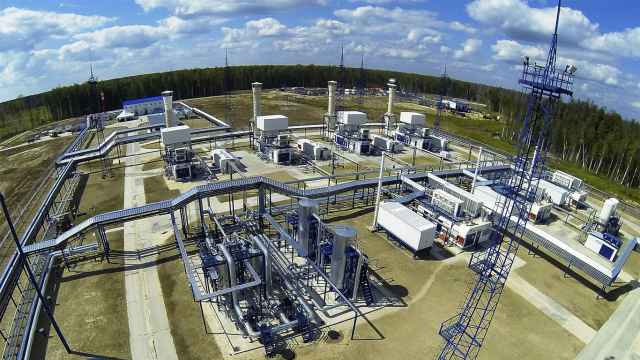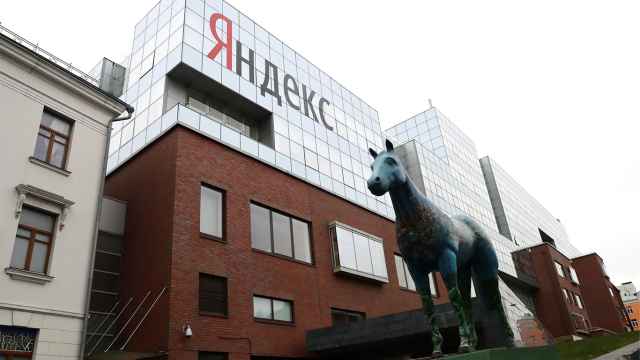Russia’s dividend season is open and investors are getting ready for record payouts. The percentage of profits that companies are sharing with their shareholders is at an all-time high both in terms of dividend yields and the amount of cash they are handing over.
The consensus forecast for the dividend yield to be paid from the next year’s profits by MSCI Russia index constituents has hit a new high of 7.9 percent — which is 4.6 percentage points more than the benchmark MSCI emerging markets average dividend yield — and the dividend to be paid in the next 12 months is at 6.9 percent, VTB Capital (VTBC) said in a note.
One of the factors that has pushed the dividend yield up to a fresh high is the surprise payout by state-owned gas behemoth Gazprom, which increased its dividend twice in a week and effectively doubled the payout to 16.6 rubles per share. The stock jumped 40 percent in value in a matter of days to make Gazprom once again the most valuable company in Russia. The management followed up to say that the new dividend level was a floor and that it expects to increase the amount of profits it shares with investors from the current 27 percent to 50 percent, probably by next year. The big change is that now investors believe it will happen.
Gazprom’s decision also pushed up the overall dividend distribution for this year, which reached an all-time high of 2.9 trillion rubles ($45.4 billion), 514 billion rubles above VTBC estimates. Between now and the end of the year Russian public companies will hand over a whopping 2.4 trillion rubles ($37.6 billion) to investors.
Despite the record payments, the RTS payout ratio declined to 37 percent, mostly on technical factors, breaking the upward trend seen since 2011. However, the dividend payout ratio for this financial year is expected to recover to 42 percent, says VTBC.
While equities are still not exciting investors and emerging market funds pulled $150 million out of the market — mostly due to selling by exchange-traded funds — the equity story continues to improve. The rally in Gazprom shares was part of a broader rally in equity prices this year that has lifted returns in all the main sectors. The leading RTS index is now back to its 2014 levels and has returned a healthy 26 percent year-to-date as of the time of writing, making Russia the second best performing equity market in the world after Greece.
Meantime, foreign investment coming into the Russian Finance Ministry’s ruble-denominated OFZ treasury bills market has driven yields on the ministry’s workhorse ten-year bond down to under 8 percent, which has resulted in a never-seen-before positive spread compared with equities. Russian bonds have always yielded more than equities in the past. The Russia equity dividend yield spread to the dollar sovereign Eurobond, at 4.15 percent, also printed a fresh record high of 370 basis points.
The names at the top of the list have remained largely the same. The companies that will pay a double-digit dividend yield in the next twelve months include: Surgutneftegaz prefs (19%), Globaltrans (17%), HMS (14%), Severstal (13%), VEON (13%), Evraz (12%), Norilsk Nickel (12%), Enel Russia (12%), Tatneft prefs (12%) and Magnitogorsk Iron and Steel Works (11%).
The increase in Gazprom’s payout has had a big impact on this year’s dividend season and has also reawakened portfolio investors’ interest in the equity market.
However, state-owned Sberbank is another state-owned enterprise (SOE) that has not yet reached the 50 percent of profits payout threshold, but almost certainly will do next season. Sberbank is also the second biggest payer of dividend in cash terms this year, with payments of 361 billion rubles, up 90 billion rubles from last year.
State-owned enterprises
State-owned oil major Rosneft closes out the top-payers podium, with a payout of 320 billion rubles, 95 billion rubles higher than last year.
In general the Finance Ministry has been battling against vested interests for more than two years, trying to enforce its rule that SOEs pay out at least 50% of their profits as dividends, but has met with stiff resistance from the best-connected business people in Russia. That is changing and the ministry is clearly getting its way.
“The seven-year streak of dividend payouts rising in the Russian market ended last year. Surgutneftegas and Lukoil meaningfully decreased their payouts from last year’s earnings. Gazprom also negatively affected the benchmark payout, although this was due to the technical issue with the change of weighting and number of shares in the index. For 2019, we see a recovery of index payouts, with Surgutneftegas and Sberbank as drivers,” VTBC said in a note.
This article first appeared in bne IntelliNews.
A Message from The Moscow Times:
Dear readers,
We are facing unprecedented challenges. Russia's Prosecutor General's Office has designated The Moscow Times as an "undesirable" organization, criminalizing our work and putting our staff at risk of prosecution. This follows our earlier unjust labeling as a "foreign agent."
These actions are direct attempts to silence independent journalism in Russia. The authorities claim our work "discredits the decisions of the Russian leadership." We see things differently: we strive to provide accurate, unbiased reporting on Russia.
We, the journalists of The Moscow Times, refuse to be silenced. But to continue our work, we need your help.
Your support, no matter how small, makes a world of difference. If you can, please support us monthly starting from just $2. It's quick to set up, and every contribution makes a significant impact.
By supporting The Moscow Times, you're defending open, independent journalism in the face of repression. Thank you for standing with us.
Remind me later.







